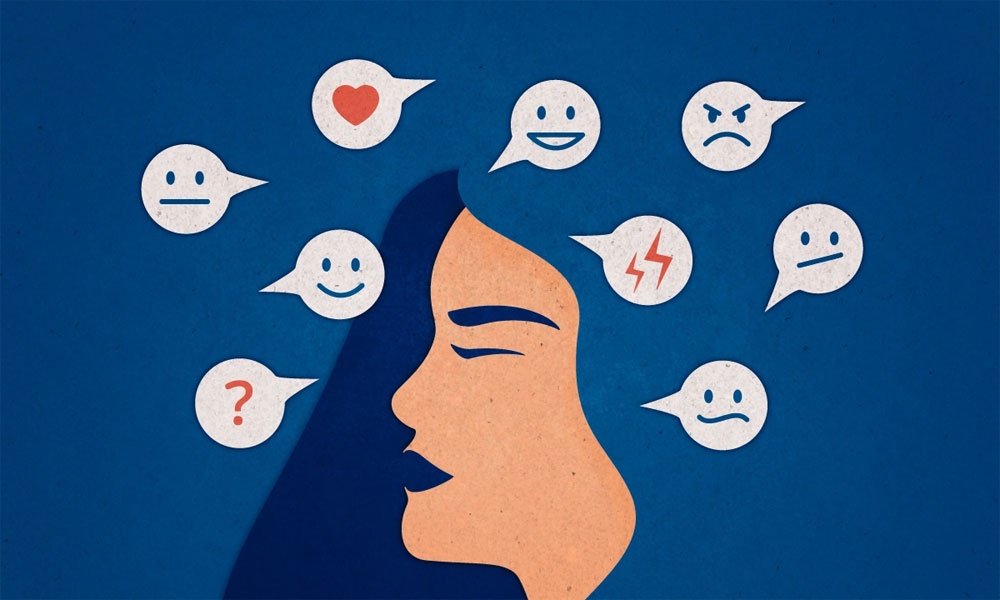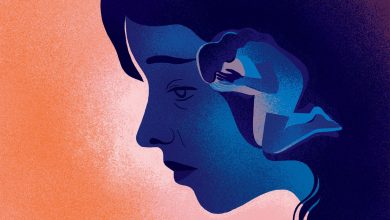Counsellors Explain Why Some Things Trigger an Emotional Response

Do you ever feel like your emotions make you feel out of control? Nowhere, the feelings of his heart were wrinkled, and he threw aside specific actions. The intensity of these feelings clouded your mind. Dealing with this feeling was both confusing and challenging.
Almost everyone has some emotional triggers, although they may look slightly different from person to person.
These can include unwanted memories, uncomfortable topics, other people’s words or actions, or even reminders of your behavior.
Such emotional responses are far from unusual. Many people encounter them every day. They are nothing to be ashamed of. But when these reactions get out of control, problems can arise.
Understanding the psychology behind them can benefit you! While some things evoke an emotional response, others do not. Here are ways to manage these responses, according to experts and research.
1. Understand the chain reaction of an emotional response
Emotional responses do not occur from the color blue. Instead, they are born out of a chain reaction of ideas. In both Cognitive-Behavioral Therapy and Rational-Emotional Behavior Therapy, experts call this the ABC model.
This treatment is extended to ABC-DEF with the following definitions.
· A: Event enable
This is an event that sets off a chain reaction. It can be anything from post-traumatic stress disorder to an everyday grieving event.
· B: Beliefs about the event
These are the beliefs you hold about the activation event. They may be rational but tend to react emotionally when reacting. Based on your personal experiences and reflections, these are the stories you tell yourself about the activation event and what it might mean to you.
· C: Consequences (emotional)
These are the consequences of your behavior based on your beliefs about the event. They can also be emotional consequences of the stresses of the Activating Event. In other words, these are the results you come across and create.
· D: Disputed statements
This part is part of the treatment. You face DEF to answer ABC. D, in this case, stands for Disputing Beliefs about the Event. By answering your beliefs with a good dose of reality, you intelligently stop the chain reaction, which challenges your assumptions.
· E: Effective new beliefs
These are things you will develop and practice as part of your treatment. These new beliefs will replace previous thoughts about the event.
· F: Future actions
It also means planning reasonable goals for implementing your new beliefs as part of treatment.
Most of us find ourselves in an endless cycle of ABCs without the therapeutic benefit of learning DEF. This is why only tangible things cause an emotional response. Chain reactions only happen when you hold negative beliefs about an Event.
Experts at the University of New Hampshire’s Psychological and Counseling Services explain this as analogous to a stop sign at an intersection. Ask yourself: what would you do if you saw this stop sign? Most likely, you can say that you will stop driving. It’s easy to believe that a stop sign is what stops you.
But let’s think about the reality. Countless people run through stop signs every day. Perhaps you have chosen not to stop at stop signs, even though you fully understand that you should. So it’s not the stop sign that makes you stop – it’s you and the chain reaction of your thoughts and responses.
An example of an activation event for an emotional response
By analogy with the stop sign, the following are some examples of the branching paths that different beliefs about “The Event” can stem from the Activation Event:
- You can stop at a stop sign if you’ve been pulled over multiple times and are in danger of losing your license. If you break this law again, you may be afraid that you will be caught and cause your loved ones to talk. This knowledge makes you stop.
- You probably won’t stop at a stop sign if you’ve been pulled over multiple times and have no legal recourse. Maybe you think your record is so bad that no amount of good behavior can change it. Or perhaps it doesn’t matter to you anymore because you’ve never had the legal ramifications of such a big deal. So it goes from coast to coast.
- If there are a lot of police in the area, you may feel compelled to stop at a stop sign because you don’t want to get in trouble. The risk of nearby officers increases the time you can save running a stop sign. In contrast, if you know that there are few policemen in the area, you may never stop.
- If you are in a hurry and have a significant emergency, you may rush past stop signs. Perhaps you think that a crisis justifies breaking this law. You might even believe that you can yell at the police for an ambulance if you get pulled over.
- If you’re in a hurry and have a significant emergency, the last thing you want is an accident that slows you down. Even though it’s difficult, you stop at the punctuation mark and take care to avoid any misfortune.
- If you’ve seen a video about the dangers of not stopping at stop signs, you might be pretty worried when you visit one coming. Perhaps you can hold off longer than usual to ensure the coast is clear before starting again. Danger scares you into stopping and encourages you to stop longer than necessary.
- You will stop unnecessarily if you have zero emotional response to a stop sign. You have no other beliefs that change your first knowledge of the law that tells you to stop at these signs. So you follow it without thinking.
In this analogy, you can see what emotional responses occur based on different core beliefs. This applies to all areas of life. Some things elicit an emotional response from you because of your thoughts.
These reactions can be major or minor. Meanwhile, other things have no additional context from any point of view, so you go about your business naturally.
2. Basic elements of emotions and emotional response
To experience an emotional response, a series of events cause your brain and body to react emotionally to the situation. These are the essential elements of emotions, and they makeup what we know and experience about our feelings. Those elements are:
· Subjective experience
The truth about emotions is that they are very subjective. Research shows that different people experience entirely different feelings, even with the same primary and universally recognized senses. For example, getting angry in most situations may not matter to you compared to others.
Or maybe the sadness is often so overwhelming that you have to leave the room to collect yourself. The broad labels we use for most emotions do not adequately cover every context of feeling. Things that cause an emotional response are associated with more substantial or complex surfaces.
· Physiological response
Emotions are not only in the head. They affect your whole body. If you’ve ever had a panic attack or even just anxiety, you know your body’s signs when you have an emotional response. Your heart doesn’t beat, and your palms sweat.
You may have a slight headache or ache. These physiological signs can be easily overlooked in the heat of emotions, but they are signs of a trigger sending buzzing bells in your brain.
· Behavioral response
It shows how feelings are expressed through action. When an emotional response is triggered, behavior usually betrays those feelings.
Maybe you freeze, scream, yell, or call. Or you can give it all away by smiling, frowning, or looking down at the floor. Sometimes a mild emotional response leads to behavior that leads to more significant emotional responses in a dangerous cycle.
3. How to better manage emotional response?
An emotional response is not always wrong but can be relative or disorganized. This can cause more problems for you. Managing these emotional responses can be crucial in understanding them and yourself better.
It will also help you learn to control how you respond to different challenging situations. Here’s how to begin managing these emotional responses:
· Acknowledge the impact of emotional response
Always consider whether the resulting reaction made you difficult, hurt others, or caused you to do something you regret. Use this as motivation to work on yourself and focus on finding reactions that won’t cause these events.
· Identify your feelings
When you feel your feelings starting to rush, stop immediately and identify your emotions. How are you feeling? What are your physiological symptoms? What caused these feelings? Then ask yourself how you want to respond to these feelings.
· Concentrate
While you can focus on the intensity of these feelings, it’s easy to get lost in the emotions. Distract yourself by thinking about something else, leaving the room, or putting your thoughts aside.
For example, if you feel sorry for yourself because you performed poorly during a presentation, you can calm yourself down by thinking about the lessons you learned from the script.
· Feel yourself
Controlling emotional responses does not mean suppressing feelings. This means that you are in control of your behavior instead of being a victim of an emotional response.
You still have to feel your feelings and allow them to exist. There is a lot of power in admitting the truth about your feelings. Therefore, it is better to think about them later!
Final thoughts on why something evokes an emotional response but others don’t
Emotional responses are normal and healthy. What matters is not the answer but how you treat it. Learning the psychology of your emotional responses can help you better manage them and communicate your feelings more healthily.
Recognizing and learning to manage your emotional triggers can take some time. Still, the effort can pay off significantly regarding your relationships and overall well-being.
Unpleasant events can trigger intense reactions in anyone, but if you can manage triggers effectively, it will be easier to handle stressful situations without unnecessary stress.












